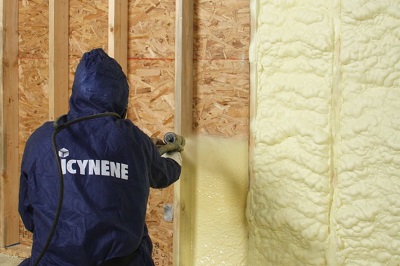 Tuesday, April 30, 2024
Tuesday, April 30, 2024  Tuesday, April 30, 2024
Tuesday, April 30, 2024 
Insulation is an important part of any home. Not only does it retain heat during the winter by restricting air flow, but it also reduces the cost of heating and cooling throughout the year. For more than a century, most new homes were built with fiberglass insulation, but this can cause many health issues. If you are building a new house or remodeling in the near future, try one of these green home insulation alternatives to make your home safe and healthy.
Not only is sheep’s wool fire retardant, but the material can keep your home warm the same way it helps sheep survive frigid temperatures. In recent years, scientists have figured out how to apply the insulating properties of sheep’s wool to home construction.
The compressed wool fibers form millions of tiny air pockets, and the outer layer is resistant to water while the inner layer absorbs moisture. This helps it generate heat while preventing condensation, and it keeps your home warm in the winter and cool in the summer.
When you use sheep’s wool, you won’t have to adjust your heating and cooling system often, and that will save you energy and money.
Because cotton is a natural and renewable resource, it is one of the most eco-friendly insulation options on the market. Leftover blue jean scraps are shredded and recycled into thick batts that fit into your walls just like fiberglass. To make it safe for humans as well as the environment, companies treat the cotton with a borate solution, so the insulation isn’t flammable.
Cotton is also a natural insect repellent, doesn’t contain formaldehyde and doesn’t cause respiratory problems. However, compared to fiberglass, it is incredibly expensive, costing nearly twice as much.
One of the strongest home insulation alternatives, Icynene is a spray foam made out of castor oil that expands about 100 times its volume when you spray it into a wall or ceiling. Not only does it seal leaks and drafts, but it also cancels noise.
During the foaming process, Icynene traps in tiny air bubbles, and when the foam cures, the air remains in place. This is why the insulation works so well. However, the sealing powers of Icynene are so strong, you have to install a ventilation system. Because of the additional requirements, the upfront costs to install Icynene are expensive. However, it will reduce your energy bill so drastically, in the long run, you will save money.
Watch the video and learn more about the benefits of joining Construction Links Network – the peer-to-peer network sharing platform for the construction, building and design community.
Ideal for YOUR Press Releases | Project Updates | New Appointments | Awards & Milestones | Company News | New Products/Services | Brochures | Videos | Infographics | Blog Sharing | Events and More